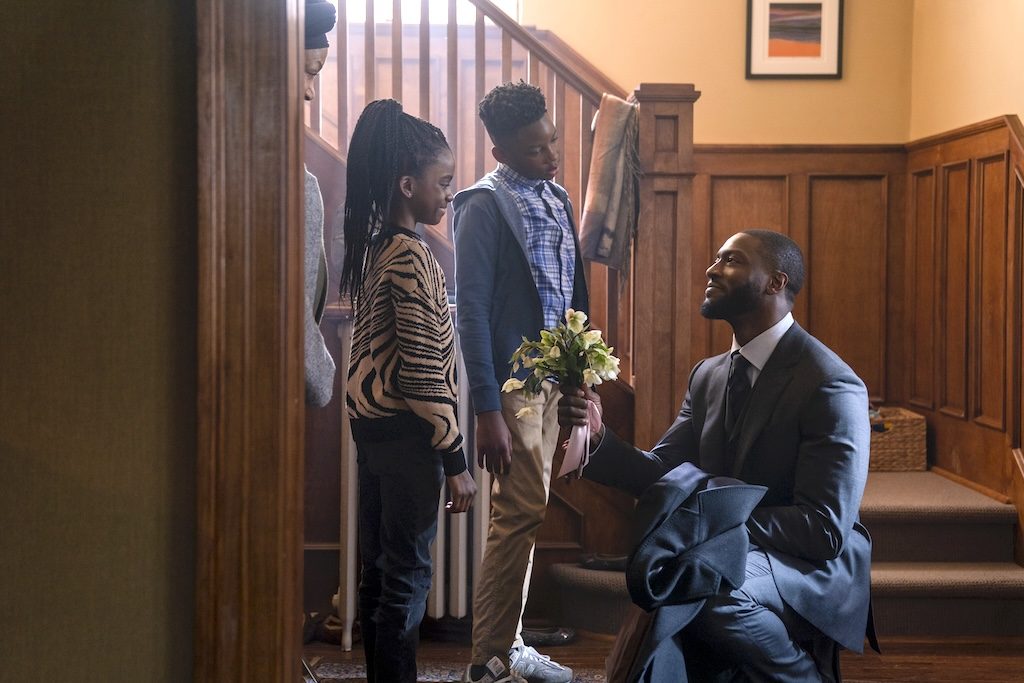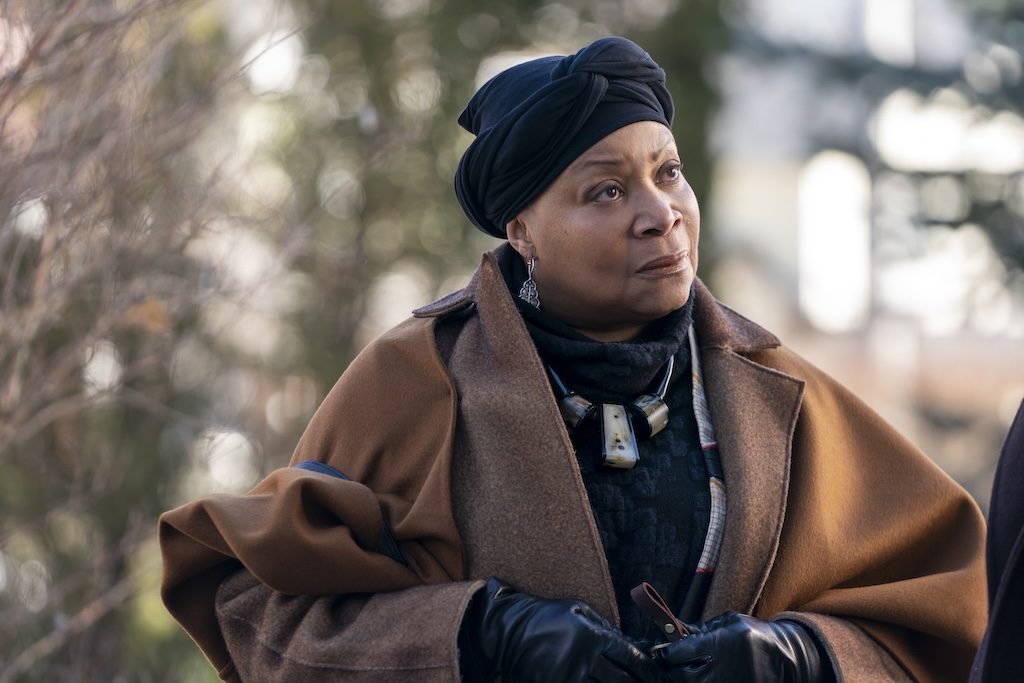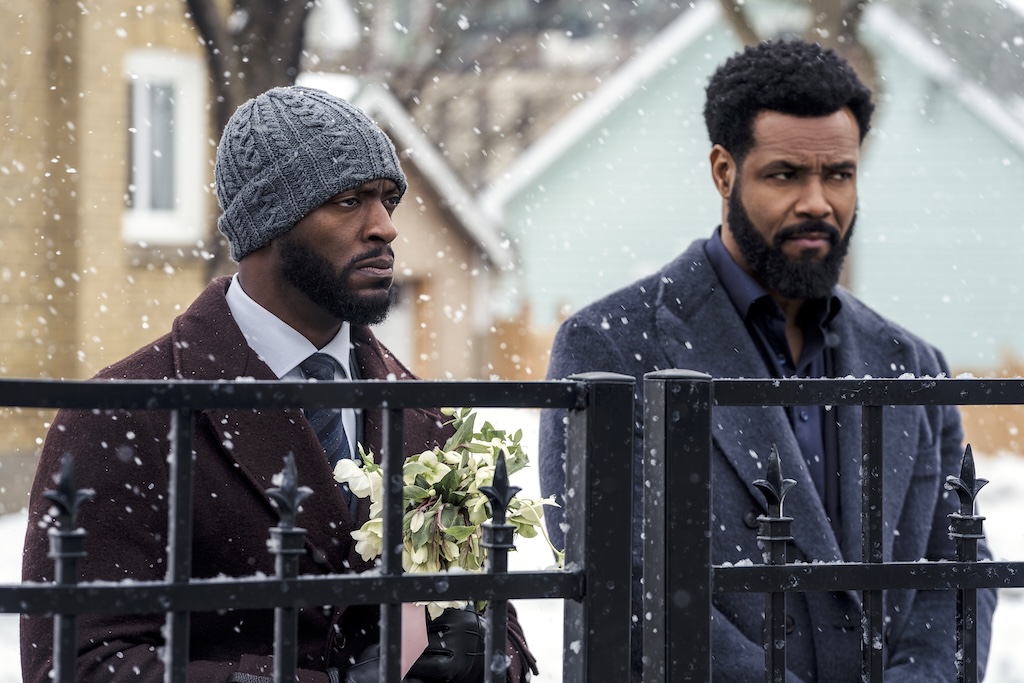Crime show lovers rejoice. The beloved James Patterson novels featuring psychologist turned detective Alex Cross is now a television series called Cross, starring Aldis Hodge in the title role. Creator Ben Watkins (Burn Notice, Hand Of God) shared his vision for the show with Creative Screenwriting Magazine.
“You’re making a detective show and there’s some level of comfort that comes with that in terms of what stories you are telling and fans of crime and detective shows will lean into,” says Watkins. “I wanted to find ways to give it more depth.”
With over thirty novels featuring Alex Cross, the character is well-established with readers. “I dug into the books and got to know the character a little bit more. I found there is more than just a detective in those books. There is someone who is a family man. There’s someone who has romances. There’s someone who is imperfect,” continues Watkins.

Ben Watkins. Photo by Billy Moon
Watkins took all of Patterson’s foundational material and infused his own voice into Cross. The first novel Along Came A Spider was published in 1992, so there was potential to refresh some of the more dated stories.
Who Is Alex Cross?
“Alex Cross is an incredibly intelligent character who’s also got an innate curiosity, incredible observational skills and strong instincts. I really wanted to heighten that.”
“So when you see him as a detective, you see someone who can not only bring these great cop skills with an intense doggedness to them, but he’s got incredible levels of perception and perspective and being able to relate to people even serial killers, which I think becomes a superpower for him.”
Alex cross also has a hero complex which complicates his life.
“He’s dealing with the grief of losing his wife and he’s not handling that well. I wanted to play how that affects not only on the job, but also how he’s dealing with the people around him, including the people who really love him.” He often lashes out which makes him more relatable and accessible. You don’t won’t a character who’s too good to be true.
Alex Cross is an amalgam of various detectives – Sam Spade from The Maltese Falcon, Travis McGee from the John D. McDonald novels, Easy Rawlins created by Walter Mosley, and the work of novelist Chester Himes from the 40s and 50s.
More recently, Watkins draws inspiration from Police Sergeant Catherine Cawood (Sarah Lancashire) from Happy Valley, who showcased mixed families and Luther (Idris Alba). Since Alex Cross contains the DNA of multiple detectives, “Cross has the ability to build a mythological character. He has to be human, not a superhero.”
Alex Cross also has a signature look inspired by Richard Rowntree’s Shaft.
Adapting The Novels (Or Not)
Ben Watkins began reading the novels starting with the first one with an eye on which books to adapt. He came to the conclusion that he didn’t want to adapt each novel “one for one.”
“I want to bring a new reflection of his character.” In so doing, he didn’t want audiences to directly compare the TV series to the novels.
“I made a decision to take the characters and the world, and take the essence of these stories and put them into a new mystery.” This would allow Watkins to free himself from the traditional adaptation process of what to include from the novels and what to leave behind. He also wouldn’t have to decide on which novel to adapt for each season.

Janelle Hodge (Melody Hurd), Damon Hodge (Caleb Elijah) & Alex Cross (Aldis Hodge) Photo by Keri Anderson/ Prime Video
“This would also give me a chance to tell us a mystery that thematically could reflect more of what’s happening in our current day and time,” he continues.
James Patterson was onboard with Watkins’ approach so long as the characters in the series are faithful to the world he created in his books.
In constructing the television character, Watkins investigated why Cross transitioned from his first love of psychology into police work. Watkins decided that Cross was more driven by his sense of duty, responsibility, and ways to help his community as a detective.
“Alex Cross’ friendship with Detective John Sampson (Isaiah Mustafa) was a huge part of the books and could be a building block for the show,” he adds. Cross and Sampson have a familiarity and shorthand where they call each other out and finish each other’s sentences.
“I drew on my own relationships with my brother, who I’m very close to, and my best friend, who’s been my best friend for forty years. I drew on both the love and affection that we have for each other, and how that plays out. I don’t see that that much in movies or television between men, much less two black men.”
Ben Watkins used his relationships to his kids to portray Alex Cross’ interactions with his own children, especially when tough choices need to be made. “I’ve tried to build strong relationships with them and get past my own sense of pride or my own perceptions of masculinity to make sure that they get to connect with their fathers.”
“There’s a road trip in Episode Six when Cross’ son Damon (Caleb Elijah) and Alex start off completely at odds. Alex doesn’t even want him to come. It ends up being a journey for them that ends with a really honest, intimate resolution. They end up sitting together both crying, remembering and sharing in their love for Maria (Alex’s wife) who’s passed away. I use a lot of my voice in those family relationships.”
Nostalgic Noir
When Ben Watkins breaks story, he looks at beyond what only makes sense for the story in the context of Cross. “The things that stick with me create an emotion. They make me feel a certain way. That a lot to do with the tone and the mood that you strike. So I had to ask myself constantly, what do I want people to feel when they walk away from watching this?”
The thriller genre also dictates the tone of Cross which Watkins refers to as nostalgic noir. “These are the shadows, corners and dark spaces that you’re afraid of, both literally and thematically are important. When are you tense and when are you relaxed?”

Nana Mama (Juanita Jennings) Photo by Keri Anderson/ Prime Video
“These include moments to get the audience’s adrenaline pumping, but also give them these respites where there’s some sort of warmth, comfort, and relief in between these thriller moments.”
Watkins considered what these moments look like in ways that inform the character. Much of these scenes are the way Cross deals with his co-workers and family.
He highlights the contrasts between how Alex Cross acts when he’s hunting a serial killer and when he’s away from work.
“There’s a lot of homages to noir with vertical blinds and shafts of light, and wood.” When Alex goes home, there’s more light and color to give the scenes a sense of warmth and comfort to show there are some safe spaces in the world.
The music and instrumentation also contours the mood. There are songs from the traditional noir period of the 40s and 50s that trigger associations and emotions as well as more modern ones.
Despite the murky darkness of the cases, Cross always has the “promise of a happy ending.”
Dealing With Sensitive Subjects
In contemporizing Cross, Watking touches on issues such as policing and racism.
“When you’re dealing with controversial topics, give the audience credit for being willing to have those topics considered and included. I think that a lot of times we underestimate the capacity of audiences to entertain controversial topics and points of view that don’t fit with them. The audiences are ready for that as long as you’re telling the truth and it’s built into the character and moves the story forward.”
We’re not here to make a statement. We’re here to open up the conversation
“We’ve built characters who have different of opinion on all types of things including the definition of justice, the definition of a hero, the role of law enforcement, the relationship between law enforcement in the black community, and how politics, greed or the need for power can impact a community.”
These conflicts in Cross are often a present as a divided loyalty. “There are times Cross leans more into the police force and the procedures than into his community. That is a source of internal conflict for him. One of the ways he navigates it is by first accepting that there’s a contradiction there. His North Start is justice.
